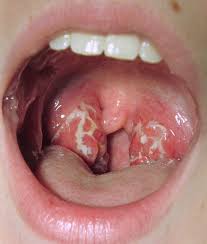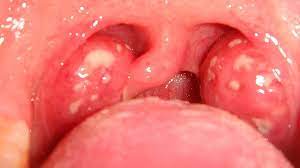
sore throat home remedies
To get rid of a sore throat, try simple home remedies like warm saltwater gargles, honey and lemon tea, staying hydrated, and resting your voice.
What is a sore throat?


Sore throat, also known as pharyngitis, is a common condition characterized by pain, discomfort, or irritation in the throat, especially when swallowing.
A sore throat can have a variety of causes, including viral infections, bacterial infections, environmental factors, or irritation. ‘
The symptoms and severity of a sore throat can vary widely depending on the underlying cause.
Common symptoms of a sore throat may include:
1. Pain or Discomfort:
The primary symptom is a painful or scratchy sensation in the throat, often worsened by swallowing.
2. Dryness or Irritation:
You may feel a dry or scratchy throat, which can lead to coughing.
3. Swelling:
The throat may appear red and swollen when examined, especially in cases of inflammation.
4. Difficulty Swallowing:
Pain and swelling can make it painful or uncomfortable to swallow, particularly when eating or drinking.
5. Slight Fever:
In some cases, a mild fever may accompany a sore throat, especially if it is caused by an infection.
6. Hoarseness:
A sore throat can affect the voice, leading to hoarseness or changes in vocal quality.
7. Coughing:
A persistent cough may develop as a result of the irritation in the throat.
8. Runny or Stuffy Nose:
If a viral infection is the cause, you may also experience cold-like symptoms, including a runny or stuffy nose.
Sore throats are typically categorized into two main types based on the underlying cause:
9. Viral Sore Throat:
The majority of sore throats are caused by viral infections, such as the common cold or the flu.
Viral sore throats are usually accompanied by other cold or flu symptoms, like a runny nose, cough, and congestion.
Antibiotics are not effective against viral infections, so treatment focuses on symptom relief and rest.
10. Bacterial Sore Throat:
Some sore throats are caused by bacterial infections, most commonly Streptococcus bacteria (strep throat).
Bacterial sore throats may be more severe than viral ones and can lead to complications if left untreated.
Antibiotics are often prescribed to treat bacterial infections.
Other less common causes of sore throats can include environmental factors (e.g., dry air, smoke, pollutants), irritants (e.g., excessive shouting or singing), and allergies.
If you have a sore throat that persists for more than a few days, is severe, or is accompanied by high fever, difficulty breathing, swollen glands, or pus on the tonsils, it’s advisable to seek medical evaluation.
A healthcare provider can determine the underlying cause and recommend appropriate treatment, which may include medications, throat lozenges, rest, and staying hydrated.
What are the symptoms of a sore throat?
The symptoms of a sore throat can vary depending on the underlying cause, but common symptoms include:
1. Throat Pain:
The most prominent symptom of a sore throat is pain, discomfort, or a scratchy sensation in the throat.
The severity of the pain can range from mild to severe.
2. Difficulty Swallowing:
Due to the pain and irritation in the throat, you may experience discomfort or pain when swallowing, especially when eating or drinking.
3. Dryness and Irritation:
Your throat may feel dry and scratchy, which can lead to coughing or a persistent urge to clear your throat.
4. Swelling and Redness:
The throat may appear red and swollen when examined, particularly in cases of inflammation caused by infections.
5. Hoarseness:
A sore throat can affect your voice, leading to hoarseness or changes in vocal quality.
6. Cough:
You may develop a persistent cough as a result of the irritation in the throat.
7. Slight Fever:
In some cases, a mild fever may accompany a sore throat, especially if it is caused by a viral or bacterial infection.
8. Runny or Stuffy Nose:
If the sore throat is due to a viral infection, you may also experience cold-like symptoms, including a runny or stuffy nose.
9. Fatigue:
Sore throats, especially when accompanied by other symptoms, can lead to general fatigue or a feeling of being unwell.
10. Swollen Glands:
In cases of bacterial throat infections like strep throat, you may notice swollen and tender lymph nodes (glands) in your neck.
White Patches or Pus:

In some bacterial infections, such as strep throat, white patches or pus may be visible on the tonsils or the back of the throat.
It’s important to note that the symptoms of a sore throat can overlap with those of other respiratory conditions, such as the common cold, influenza (the flu), or allergies.
The underlying cause of the sore throat may dictate the specific symptoms you experience.
If you have a sore throat that persists for more than a few days, is severe, or is accompanied by a high fever, difficulty breathing, or other concerning symptoms, it’s advisable to seek medical evaluation.
A healthcare provider can determine the cause of the sore throat and recommend appropriate treatment, which may include medications, throat lozenges, rest, and staying hydrated.
In cases of bacterial infections like strep throat, antibiotics may be prescribed.
What are the causes of a sore throat?
A sore throat, or pharyngitis, can have various causes, including viral infections, bacterial infections, environmental factors, or irritants.
The specific cause of a sore throat can help determine the appropriate treatment.
Here are some common causes of sore throats:
Viral Infections:
Viral infections are the most common cause of sore throats. These can include:
1. Common Cold:
Rhinoviruses and other respiratory viruses can cause a sore throat, along with symptoms like a runny or stuffy nose, cough, and sneezing.
2. Influenza (Flu):
Influenza viruses can lead to a sore throat, often accompanied by high fever, body aches, and fatigue.
3. Mononucleosis (Mono):
The Epstein-Barr virus, which causes mono, can result in a severe sore throat, along with other symptoms like swollen lymph nodes and fatigue.
Bacterial Infections: Bacterial infections can also cause sore throats.
The most well-known bacterial cause is Streptococcus bacteria, which can lead to strep throat.
Other bacteria can also be responsible for bacterial pharyngitis.
Environmental Factors: Environmental factors can contribute to or exacerbate a sore throat, including:
1. Dry Air:
Breathing dry air, especially during the winter months when indoor heating is used, can lead to throat dryness and irritation.
3. Allergies:
Allergic reactions to pollen, dust, pet dander, or other allergens can result in a sore throat and other respiratory symptoms.
4. Smoke and Air Pollution:
Exposure to tobacco smoke, air pollution, or other irritants in the air can irritate the throat and cause discomfort.
5. Irritants:
Irritants such as excessive shouting, singing, or talking loudly for extended periods can strain the vocal cords and lead to a sore throat.
6. Gastroesophageal Reflux Disease (GERD):
Acid reflux from the stomach into the esophagus can cause irritation and a persistent sore throat, often referred to as acid reflux-induced pharyngitis.
7. Postnasal Drip:
Excess mucus dripping down the back of the throat (postnasal drip) due to allergies, sinusitis, or other respiratory conditions can lead to throat irritation.
8. Tonsillitis:
Inflammation and infection of the tonsils, known as tonsillitis, can cause a sore throat.
Tonsillitis can be caused by viruses or bacteria, with streptococcal bacteria being a common bacterial culprit.
Inhalation of Irritants: Inhaling chemical irritants, such as household cleaning products, can irritate the throat and lead to a sore throat.
9. Cancer:
In rare cases, a persistent sore throat can be a symptom of throat or laryngeal cancer.
This is more common in individuals who smoke or use tobacco products and may be associated with other concerning symptoms.
It’s important to determine the underlying cause of a sore throat, especially if it persists for more than a few days, is severe, or is accompanied by other concerning symptoms.
This can guide appropriate treatment, which may include rest, hydration, throat lozenges, over-the-counter pain relievers, or, in the case of bacterial infections, antibiotics prescribed by a healthcare provider.
What are the home remedies to cure a sore throat?
Home remedies can help alleviate the discomfort of a sore throat and promote healing, especially when the cause is a viral infection or environmental factors.
Here are some remedies to consider for soothing a sore throat:
1. Stay Hydrated:
Drink plenty of fluids, such as water, herbal teas, clear broths, and warm water with honey and lemon. Hydration helps keep the throat moist and can relieve discomfort.
2. Gargle with Saltwater:
Mix about 1/2 teaspoon of salt in a glass of warm water and use it to gargle several times a day.
This can help reduce inflammation and soothe the throat.
Lozenges or Hard Candy: Sucking on throat lozenges or hard candy can help keep the throat moist and ease irritation.
Look for lozenges that contain soothing ingredients like menthol or honey.
3. Ginger.

It soothes a sore throat and is one of the best home remedies. Ginger is an herbal remedy for sore throats. It has a lot of valuable chemicals. It may have more than one property. You can make ginger tea at home. Add fresh ginger roots to the water. Boil water for a few minutes; strain the liquid and remove the ginger before drinking. The ginger tea is ready. After that, you should drink this tea many times. It will help to relieve sore throat pain.
4. Marshmallow is one of the best home remedies to treat sore throat.

A cold mixture of marshmallows is one of the best home remedies for sore throat. Adding a small amount of ground marshmallows to a jar of cold water can make a cold brew. Thus, to be sure, keep the infusion for one night. Whenever you feel a slight ache in your throat, take a cold-infusion sip in small amounts. Cold infusions can be refrigerated and used as needed.
5. Honey:

Honey has natural antimicrobial and soothing properties. Mix a teaspoon of honey into warm water or herbal tea, or simply take it by the spoonful. Note that honey should not be given to children under one year of age due to the risk of botulism.
6. Lemon:

Lemon can provide relief and vitamin C. Squeeze fresh lemon juice into warm water or tea and add honey for extra soothing properties.
7. Humidifier:
Use a humidifier in your room, especially during dry seasons or in heated indoor environments, to add moisture to the air and prevent further throat dryness.
8. Rest:
Give your body time to recover by getting adequate rest. Avoid strenuous activities that can strain your throat.
9. Over-the-Counter Pain Relievers:
Non-prescription pain relievers like acetaminophen (Tylenol) or ibuprofen (Advil) can help reduce pain and inflammation. Follow the dosing instructions on the label.
10. Steam Inhalation:
Inhaling steam from a bowl of hot water can help soothe the throat and relieve congestion. Be cautious to avoid burns.
11. Elevate Your Head:
Prop up your head with extra pillows while sleeping to prevent postnasal drip from irritating your throat.
12. Avoid Irritants:
Avoid exposure to smoke, strong odors, and other irritants that can worsen throat irritation.
13. Throat Coat Tea:
Some herbal teas, like licorice root or marshmallow root tea, may provide relief. Look for throat-soothing herbal teas at your local health food store.
14. Chicken Soup:
Chicken soup not only provides hydration but can also have a soothing effect on a sore throat. The warmth and steam can be comforting. If your sore throat is caused by a bacterial infection, such as strep throat, it may require antibiotics prescribed by a healthcare provider. Therefore, it’s essential to consult a doctor if your sore throat is severe, persistent, or accompanied by high fever, difficulty breathing, or other concerning symptoms. Additionally, if you have recurrent or chronic sore throats, it’s advisable to seek medical evaluation to determine the underlying cause and appropriate treatment.
What are the treatments to cure a sore throat?
The treatment of a sore throat depends on its underlying cause.
Here are some common treatments and approaches for different types of sore throats:
For Viral Sore Throat (e.g., Common Cold or Flu):
1. Rest:
Get plenty of rest to support your body’s immune response.
2. Hydration:
Drink fluids, such as water, herbal teas, clear broths, and warm water with honey and lemon, to stay well-hydrated.
3. Over-the-Counter Pain Relievers:
Non-prescription pain relievers like acetaminophen (Tylenol) or ibuprofen (Advil) can help reduce pain and fever.
Follow the dosing instructions on the label.
4. Bacterial Sore Throat (e.g., Strep Throat):
Antibiotics: Bacterial infections, such as strep throat, often require treatment with antibiotics prescribed by a healthcare provider.
It’s essential to complete the full course of antibiotics as prescribed, even if you start feeling better before finishing them.
5. Rest and Hydration:
Rest and stay hydrated to support your recovery.
Over-the-Counter Pain Relievers: OTC pain relievers can provide relief from pain and fever.
6. Allergic Sore Throat:
Allergy Medications: Antihistamines, decongestants, and nasal corticosteroids can help control allergy symptoms, including a sore throat.
Avoid Allergens: Identify and avoid allergens that trigger your symptoms.
7. Irritant-Induced Sore Throat:
Avoid Irritants: Reduce exposure to irritants in the environment, such as smoke, strong odors, pollutants, and chemical fumes.
Gastroesophageal Reflux Disease (GERD)-Induced Sore Throat:
Lifestyle Modifications:
Elevate the head of your bed, avoid large meals before bedtime, and limit trigger foods.
Medications:
Proton pump inhibitors (PPIs) or H2-receptor antagonists can help reduce stomach acid production.
Postnasal Drip-Induced Sore Throat:
Saline Nasal Irrigation:
Rinsing your nasal passages with a saline solution can help reduce postnasal drip.
Decongestants:
OTC decongestants can relieve nasal congestion, which may reduce postnasal drip.
Chronic Conditions (e.g., Chronic Tonsillitis):
Prescription Medications: Chronic conditions may require specific prescription medications, such as antibiotics for chronic tonsillitis.
Surgical Intervention:
In some cases, surgical procedures like tonsillectomy may be recommended.
Vocal Cord Strain or Laryngitis:
Voice Rest: Rest your voice by avoiding excessive talking, shouting, or singing.
Hydration:
Stay well-hydrated by drinking fluids to soothe the throat.
Psychogenic Sore Throat:
Counseling or Therapy: Psychogenic sore throats may respond to counseling or therapy aimed at addressing underlying psychological factors.
Environmental Factors:
Stay Warm:
Cover your mouth and nose in cold weather to warm the air you breathe.
Use a Humidifier:
Humidifiers can add moisture to dry indoor air.
In addition to these treatments, home remedies like honey, ginger tea, warm saltwater gargles, and throat lozenges can help soothe a sore throat and alleviate symptoms.
If your sore throat persists for an extended period, is severe, or is associated with other concerning symptoms, consult a healthcare professional for evaluation and appropriate treatment.
It’s essential to identify the underlying cause of the sore throat to determine the most effective treatment approach.







